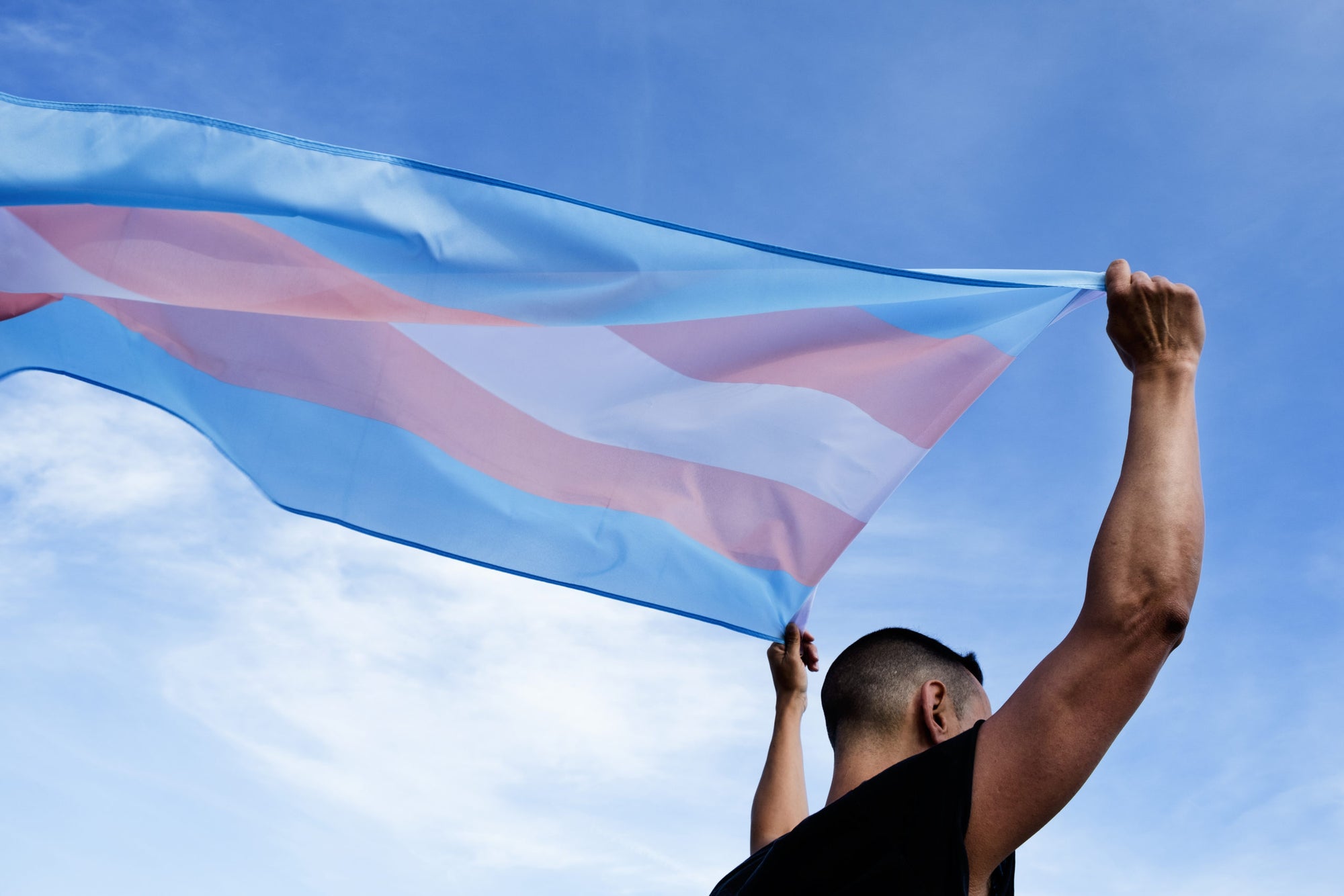
Breaking Barriers: Insights into the Journey of Queer Menstruators in Indonesia
by Nanda Bagus
Menstruation is still seen as a taboo topic worldwide, even in today’s society.So, what happens when we bring a queer narrative and perspective into the conversation, particularly in the country where patriarchy dominates the narrative? Let me discuss it with you in the context of Indonesia.
The experiences of menstruation from LGBTQIA+ individuals in Indonesia present a range of challenges that are frequently overlooked. Navigating gender identity struggle and accessing appropriate menstrual products are only a few of the issues that queer menstruators face, highlighting the need for greater attention and support. Through this writing, I’d like to explore the world of queer menstruation, delve into how it challenges and expands our understanding of menstrual health and identity. In this article, I refer to queer menstruators as individuals who experience monthly menstruation but do not identify solely as women.
While silencing menstruation has negative impacts on women’s health and rights it has severe consequences for queer menstruators too, including gender dysphoria and mental health issues. All of these are the result of stigmatization and LGBTQIA+ phobic in heteronormative society.. Therefore, being a queer menstruator can be an isolating and confusing experience.
The most obvious challenge is that when discussing menstruation, it is commonly associated with women. While this association is not entirely incorrect, it is also not entirely true. In fact, menstruation is experienced by individuals with male or non-binary gender identities, including those who have not undergone medical transition. This occurs when someone with a male identity possesses female reproductive characteristics, such as having a vagina. Due to various factors, including hormonal imbalances, dysphoria-related stress, and other underlying health conditions, Trans men and gender non-conforming individuals might experience more challenges in managing menstruation than cis-women. Furthermore, limited access to education, products, menstrual stigma, and taboos are daunting factors for them in order to understand their bodies.

Due to the prevailing association of menstruation with women, individuals with male or non-binary gender identities who experience menstruation struggle to find suitable information or products.
A trans man living in an urban city in Java island, for instance, finds it difficult to purchase what menstrual products are suitable for them. They are not comfortable buying the products in small ‘warung’ or minimarket due to social stigma that ‘socially constructed man’ is not supposed to buy the products, or the community will assume that they buy it for their female friends.
In certain instances, trans men and gender non-conforming individuals who require immediate access to free menstrual products in public settings may encounter challenges. These products are often located exclusively in areas designated for women, such as women's restrooms. This situation can cause discomfort for trans men and gender non-conforming individuals when trying to access these spaces. For example, some public establishments in major cities, like coffee shops and co-working spaces, may provide complimentary sanitary pads either at the bar or within women's restrooms.
As a result, this experience invalidates their own needs and leads them to seek a friendly community or place for them to freely discuss their experience.
One of which is Bali that has open-minded communities and amicable for all individuals regardless their gender. I have an opportunity to talk with Venon, a non-binary individual living in Ubud, who shares their comfort in discussing topics like menstruation in a few small spaces such as Queer Collective that they’re a part of. Discussing their menstruation experience helps Venon to understand their bodies, embrace their monthly routine, acknowledge its physical discomfort and how to deal with it.
"The pain in my ass is unbearable," exclaimed Venon, highlighting that their menstrual discomfort mainly manifests in that area rather than their stomach. Seeking medical advice, they once visited an obstetrician and gynecologist who diagnosed them with a hormone imbalance. To address this, Venon started taking hormone pills, which proved effective in alleviating their symptoms.
Acknowledging the issue of stigma and limitation, Venon recognizes that the society lacks awareness and understanding of gender and its diverse spectrum. They often encounter comments like, "Oh, so you can actually have a period!" Nevertheless, Venon remains hopeful that progress will be made in educating and enlightening others.
Another experience in understanding menstrual health in the LGBTQIA community has been shared by Udeen. Udeen is a trans man in his early 20s and just finished his college education in Jogja. As a young trans man who is also on a journey to embrace his menstrual routine, he reflects, "Initially, when I realized I didn't identify as a woman, it was a bit unsettling. However, as time passed, and I learned to accept myself, those feelings became less significant. It just became a normal part of who I am."
What is even worse, Trans individuals continue to experience fear and anxiety due to potential judgment and stares when they carry and change menstrual products in men's restrooms. The existing societal norms and derogatory comments from cisgender men, who react negatively to witnessing a man with menstrual products in men's restrooms, create significant challenges for trans individuals in finding a safe and comfortable space to exercise their sexual and reproductive health rights.
"I remember a time when I shared my experience of having cramps on the first day, and someone responded with, 'Why does a guy have periods?' It saddened me back then, but that was a while ago. Nowadays, if someone tries to provoke me, I simply ignore them. It's not their concern, so why should it bother me?"
Udeen shared when asked about any social stigma he faced related to menstruation as a trans man.
"I use single-use pads, although some brands irritate my vagina. Also, I rarely change pads in public places because I am not comfortable. It's not about me being a man and having my period; it's more about the fact that changing pads anywhere other than in the private space makes me feel strange and unhygienic. The availability of waste bins for disposing of menstrual products is also another significant issue. " he explained. Even though some Trans-men may feel more at ease changing their menstrual products in the men's bathroom, various limitations persist in ensuring individuals' comfort.
However, during a conversation with another trans-man who does not want to disclose his identity, I discovered something truly empowering: period underwear. He spoke about the incredible impact it has had on his life. Wearing these underwears brings him a sense of liberation that is truly remarkable. It completely eliminates his experience of dysphoria when meeting his basic sanitary needs. Moreover, the simplicity of using period underwear, just like any other pair of underwear, has completely transformed his experience.
This conversation with the first hand experienced queer menstruators helps to provide a fact that enhancing access and mitigating the stigma associated with this natural bodily process for trans and non-binary individuals is of importance, despite their challenges. To achieve gender equality, of course , it is crucial to broaden educational efforts and ensure the availability of inclusive and easily obtainable reproductive health products. By doing so, we can actively contribute to fostering a safer and more embracing environment that respects and acknowledges the diverse gender identities of all individuals.
In conclusion, discussing menstruation within the context of queer narratives and perspectives is crucial, particularly in societies where patriarchy dominates the narrative, such as Indonesia. LGBTQIA+ individuals face unique challenges and obstacles when it comes to menstruation, including gender dysphoria, limited access to suitable products, and the stigma surrounding their experiences. Silencing menstruation not only affects women's health and rights but also has severe consequences for queer menstruators, leading to feelings of isolation and confusion. By recognizing and addressing these challenges, we can work towards creating a more inclusive society that supports and respects the diverse experiences and identities of all individuals.
To promote gender equality, it is essential to enhance access to education and reproductive health products while mitigating the stigma associated with menstruation for trans and non-binary individuals. This can be achieved by expanding educational efforts, increasing the availability of inclusive products, and fostering a safer and more embracing environment. By doing so, we can move towards a society that celebrates and acknowledges the diverse gender identities of all individuals, ultimately promoting greater equality and inclusivity for everyone. Together, we can break the silence surrounding queer menstruation and pave the way for a more compassionate and understanding society. <3
